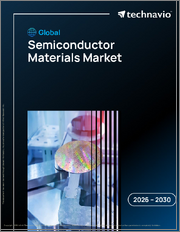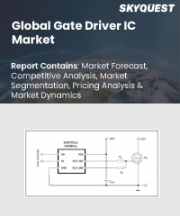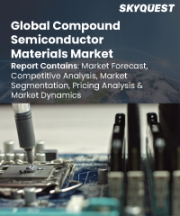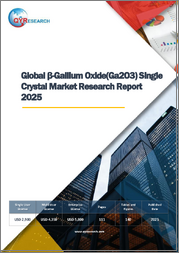
|
시장보고서
상품코드
1868290
반도체 재료 시장 : 재료 유형별, 웨이퍼 사이즈별, 용도별, 최종사용자 산업별 - 세계 예측(2025-2032년)Semiconductor Material Market by Material Type, Wafer Size, Application, End User Industry - Global Forecast 2025-2032 |
||||||
반도체 재료 시장은 2032년까지 연평균 복합 성장률(CAGR) 6.08%로 998억 4,000만 달러에 이를 것으로 예측됩니다.
| 주요 시장 통계 | |
|---|---|
| 기준 연도 : 2024년 | 622억 3,000만 달러 |
| 추정 연도 : 2025년 | 658억 4,000만 달러 |
| 예측 연도 : 2032년 | 998억 4,000만 달러 |
| CAGR(%) | 6.08% |
재료 과학, 공급망 복원력, 진화하는 디바이스 아키텍처가 반도체 재료의 우선순위와 전략을 재구성하는 방법에 대한 종합적인 소개
반도체 재료 분야는 소자 구조의 발전, 최종 사용 산업에서 수요 변화, 공급망 탄력성에 대한 지속적인 강조에 힘입어 기술적, 상업적 진화가 집중되는 시기를 맞이하고 있습니다. 재료과학은 성능 향상에 핵심적인 역할을 하고 있으며, 차별화 요소는 설계 및 공정뿐만 아니라 도펀트, 기판, 패키징 관련 화합물의 제어된 사용 및 조달에서 비롯되고 있습니다. 디바이스의 미세화, 성능 및 전력 효율이 향상됨에 따라 웨이퍼 제조 및 패키징 단계에서 선택되는 재료는 수율, 신뢰성 및 총 소유 비용에 큰 영향을 미칩니다.
반도체 가치사슬 전반공급업체 다변화, 첨단 패키징 채택, 재료 혁신을 촉진하는 전략적 및 기술적 전환점 분석
현재 업계는 공급업체 관계, 기술 요구 사항, 자본 배분의 우선순위를 재정의하는 여러 가지 변혁적 변화가 진행 중입니다. 이러한 변화의 중심에는 첨단 패키징 기술과 보다 엄격한 성능 및 열 관리 요구사항이 결합되어 있습니다. 이에 따라 특수 패키징 재료와 미세 피치 상호 연결 솔루션의 중요성이 더욱 커지고 있습니다. 동시에, 웨이퍼 제조는 더 큰 웨이퍼 직경과 더 엄격한 공정 창에 대한 요구에 직면하고 있으며, 공급업체는 이에 대응하여 공정 및 인증 프레임워크를 조정해야 합니다.
누적 관세 조치가 반도체 소재 공급망에서 조달 결정, 인증 일정, 자본 배분 선택을 재구성하는 방법을 살펴봅니다.
관세 및 관련 무역 조치를 통해 시행된 누적적인 정책 조치는 조달 전략, 수직적 통합 결정, 공급업체 리스크 평가에 큰 영향을 미치고 있습니다. 관세는 생산기지 이전과 조달 우선순위 전환을 촉진하는 수단으로 작용하는 한편, 공급망 경로 조정, 계약 재계약, 현지 생산의 경제성 등의 형태로 영향을 미치고 있습니다. 관세 위험에 노출된 기업들은 장기 공급업체 계약 재검토, 대체 공급업체 인증 가속화, 잠재적 혼란을 완화하기 위한 재고 버퍼 강화 등을 추진하고 있습니다.
재료 유형, 웨이퍼 크기, 용도, 최종 사용자 산업이 어떻게 차별화된 요구사항과 공급업체 역학을 만들어내는지 파악할 수 있는 세부 세분화 분석
효과적인 세분화 프레임워크는 기술적 위험, 인증 노력, 공급 집중이 교차하는 영역과 전략적 기회가 가장 두드러지는 영역을 식별할 수 있습니다. 재료 유형에 따라 외부 반도체 재료와 내부 반도체 재료로 구분됩니다. 외인성 물질은 다시 N형 도펀트와 P형 도펀트로 나뉩니다. N형 도펀트에는 안티몬, 비소, 인이 포함되며, P형 도펀트에는 알루미늄, 붕소, 갈륨, 인듐이 포함됩니다. 내인성 재료는 주로 게르마늄과 실리콘으로 대표되며, 각각 소자 구조에 따라 가공상의 어려움과 용도가 다릅니다.
지역별 인텔리전스: 북미, 남미, 유럽, 중동 및 아프리카, 아시아태평양의 동향이 업계 전반의 조달 선택, 생산 능력 전략, 혁신 우선순위에 미치는 영향
지역별 동향은 조달 전략, 생산능력 확대, 규제 준수, 혁신 생태계에 깊은 영향을 미칩니다. 미주 지역에서는 공급망 전략에서 첨단 패키징 및 시스템 조립 거점과의 통합을 우선시하는 경향이 있으며, 국내 인증 프로세스와 빠른 시장 출시를 중시하는 자동차 및 산업 분야 수요 동인이 강하게 반영되고 있습니다. 또한, 고신뢰성 용도과 국방 관련 공급망 복원력(resilience)에 중점을 두어 조달 정책 및 공동 연구개발(R&D) 노력을 형성하고 있습니다.
자재 공급 및 인증의 경쟁 우위 결정, 공급업체 차별화, 공동 개발 관행, 시험 능력에 대한 자문형 평가
재료 공급업체와 관련 서비스 제공업체 간의 경쟁 환경은 깊은 기술 전문성, 긴 인증 리드 타임, 전략적 고객 관계의 중요성 등으로 특징지어집니다. 주요 기업들은 재료 포트폴리오의 폭, 품질 시스템의 깊이, 인증 지원 서비스의 견고함으로 차별화를 꾀하고 있습니다. 공급업체와 주요 파운드리 및 OSAT(위탁 조립 테스트 업체)와의 전략적 제휴는 재료 혁신과 업스트림 공정 전문성을 결합하여 새로운 도펀트, 기판 표면 처리 및 패키징 재료의 도입을 가속화하는 경우가 많습니다.
조달, R&D, 리스크 관리를 통합하고, 인증을 가속화하고, 강력한 자재 공급망을 확보하기 위한 리더를 위한 구체적인 전략 제안
업계 리더는 조달 전략을 R&D, 품질 보증, 기업 리스크 관리와 통합하는 적극적인 자세를 취해야 합니다. 첫째, 리더는 엄격한 인증 프로세스를 유지하면서 공급업체 다변화를 가속화해야 합니다. 여기에는 대체 도펀트 공급처, 기판 공급업체, 패키징 화합물 공급업체에 대한 사전 인증이 포함되어 단일 공급처에 대한 의존도를 낮출 수 있습니다. 조달 일정을 엔지니어링 인증 주기와 연동하여 위험 감소 활동을 신속한 제품 양산과 유연한 조달 실현의 원동력으로 전환할 수 있습니다.
본 조사는 주요 이해관계자 인터뷰, 2차 기술 검토, 시나리오 기반 민감도 분석을 결합한 투명하고 엄격한 혼합 방식을 채택하여 실행 가능한 인사이트를 확보하기 위해 노력했습니다.
본 보고서에서 적용한 조사 방법은 정성적 분석, 주요 이해관계자와의 직접 대화, 공개 기술 문헌 및 업계 공시 자료와의 상호 검증을 결합하여 이루어졌습니다. 주요 입력 정보에는 웨이퍼 제조, 패키징 어셈블리, 조달, 공급망 관리 분야의 기술 책임자와의 구조화된 인터뷰, 재료 공급업체 및 독립 테스트 기관과의 논의가 포함됩니다. 이러한 대화는 현실적인 인증 일정, 대체 제약 조건, 프로세스 통합 시 직면하게 되는 실질적인 트레이드오프를 명확히 하기 위해 고안되었습니다.
반도체 소재 전략의 회복력과 경쟁적 포지셔닝을 결정하는 기술적, 상업적, 정책적 상호의존성 요약
첨단 패키징 요구사항, 진화하는 웨이퍼 포맷, 변화하는 조달 전략의 교차점은 반도체 재료 이해관계자들에게 복잡성과 기회를 동시에 창출하고 있습니다. 재료의 선택은 디바이스 성능뿐만 아니라 공급망 복원력 및 규제 준수에 있어서도 핵심적인 역할을 하게 되었습니다. 조달, 엔지니어링, 전략 기능을 적극적으로 연계하는 조직은 새로운 도펀트, 기판 기술 혁신, 패키징 화학 기술에서 발생하는 기회를 포착하고 인증 리스크를 관리할 수 있는 더 나은 태세를 갖출 수 있습니다.
목차
제1장 서문
제2장 조사 방법
제3장 주요 요약
제4장 시장 개요
제5장 시장 인사이트
제6장 미국 관세의 누적 영향 2025
제7장 AI의 누적 영향 2025
제8장 반도체 재료 시장 : 재료 유형별
- 불순물 첨가 반도체 재료
- N형
- 안티몬
- 비소
- 인
- P형
- 알루미늄
- 붕소
- 갈륨
- 인듐
- N형
- 진성 반도체 재료
- 게르마늄
- 실리콘
제9장 반도체 재료 시장 : 웨이퍼 사이즈별
- 200mm-300mm
- 300mm 이상
- 200mm 미만
제10장 반도체 재료 시장 : 용도별
- 포장 및 어셈블리
- 성형 및 캡슐화
- 웨이퍼 다이싱
- 와이어 본딩 및 플립칩
- 웨이퍼 제조
- 도핑 및 이온 주입
- 포토리소그래피
- 기판 제조
제11장 반도체 재료 시장 : 최종사용자 산업별
- 항공우주 및 방위
- 자동차
- 가정용 전자기기
- 의료기기
- 산업
- 통신
제12장 반도체 재료 시장 : 지역별
- 아메리카
- 북미
- 라틴아메리카
- 유럽, 중동 및 아프리카
- 유럽
- 중동
- 아프리카
- 아시아태평양
제13장 반도체 재료 시장 : 그룹별
- ASEAN
- GCC
- EU
- BRICS
- G7
- NATO
제14장 반도체 재료 시장 : 국가별
- 미국
- 캐나다
- 멕시코
- 브라질
- 영국
- 독일
- 프랑스
- 러시아
- 이탈리아
- 스페인
- 중국
- 인도
- 일본
- 호주
- 한국
제15장 경쟁 구도
- 시장 점유율 분석, 2024
- FPNV 포지셔닝 매트릭스, 2024
- 경쟁 분석
- Applied Materials, Inc.
- Compound Semiconductor(Xiamen) Technology Co., Ltd
- CoorsTek, Inc.
- Corning Incorporated
- Dow Chemical Company
- DuPont de Nemours, Inc.
- Entegris, Inc.
- Ferrotec Holdings Corporation.
- Hemlock Semiconductor Operations LLC
- Henkel AG & Co. KGaA
- Honeywell International Inc.
- JSR Corporation
- JX Advanced Metals Corporation
- LG Chem, Ltd.
- Merck KGaA
- Mitsubishi Chemical Corporation
- Nitto Denko Corporation
- Okmetic Oy
- Resonac Holdings Corporation
- Samsung Electronics Co., Ltd.
- Shin-Etsu Chemical Co., Ltd.
- SK Inc.
- Soitec
- Soulbrain Co., Ltd.
- SUMCO Corporation
- Sumitomo Electric Semiconductor Materials, Inc.
- Tokuyama Corporation
- UBE Corporation
- Wacker Chemie AG
The Semiconductor Material Market is projected to grow by USD 99.84 billion at a CAGR of 6.08% by 2032.
| KEY MARKET STATISTICS | |
|---|---|
| Base Year [2024] | USD 62.23 billion |
| Estimated Year [2025] | USD 65.84 billion |
| Forecast Year [2032] | USD 99.84 billion |
| CAGR (%) | 6.08% |
Comprehensive introduction to how materials science, supply chain resilience, and evolving device architectures are reshaping semiconductor material priorities and strategies
The semiconductor material landscape is undergoing a period of concentrated technological and commercial evolution, driven by advances in device architectures, shifts in demand across end-use industries, and a persistent emphasis on supply chain resilience. Materials science is increasingly central to performance gains, with differentiation now emerging not only from design and process but from the controlled use and sourcing of dopants, substrates, and packaging-related compounds. As devices scale to enable higher performance and power efficiency, the material choices made at both wafer fabrication and packaging stages materially influence yield, reliability, and total cost of ownership.
Many established supply chains continue to adapt to changing geopolitical priorities, environmental regulations, and the rising complexity of advanced packaging. Consequently, R&D and procurement teams are placing greater emphasis on traceability, qualification timelines, and qualification cost trajectories associated with alternative materials and wafer formats. These dynamics have cascading effects across the ecosystem, affecting equipment providers, material suppliers, OSATs, IDM fabs, and fabless companies alike. Given the interplay of technical constraints and commercial pressures, stakeholders now require integrated intelligence that links material properties and processing compatibility with practical considerations such as supplier concentration, lifecycle management, and qualification lead times.
Overall, a strategic view of semiconductor materials must reconcile near-term operational continuity with medium-term transformation. This necessitates cross-functional alignment across engineering, procurement, and corporate strategy to ensure that material selection decisions not only meet immediate technical targets but also support broader resilience and innovation goals.
Analysis of the strategic and technological inflection points that are driving supplier diversification, advanced packaging adoption, and materials innovation across semiconductor value chains
The industry is experiencing several transformative shifts that are redefining supplier relationships, technical requirements, and capital allocation priorities. Central among these shifts is the convergence of advanced packaging techniques with more demanding performance and thermal management requirements, which increases the importance of specialized packaging materials and fine-pitch interconnect solutions. At the same time, wafer fabrication is being pressured by demands for larger wafer diameters and tighter process windows, prompting suppliers to adapt processes and qualification frameworks accordingly.
Another major trend is the strategic diversification of sourcing strategies. Firms are adopting multi-sourcing models and nearshoring initiatives to mitigate concentration risk and to better manage geopolitical exposure. This transition is accompanied by heightened scrutiny of provenance and sustainability credentials, with buyers increasingly favoring suppliers that can demonstrate responsible mining, lower embodied carbon, and more transparent traceability throughout the materials lifecycle. Parallel to these commercial shifts, technological progress in doping methods, substrate engineering, and compound semiconductors is expanding the palette of materials that are practically deployable in high-volume manufacturing.
Lastly, the competitive landscape for materials suppliers is changing as new entrants and adjacent-industry players bring innovative chemistries and process expertise into the semiconductor value chain. These entrants often target niche opportunities in either high-performance logic, power electronics, or advanced packaging. Consequently, incumbents must accelerate product development cycles and build stronger customer partnerships to retain relevance. Collectively, these dynamics are steering strategic investment, collaborative R&D, and procurement behavior across the industry.
Examining how cumulative tariff measures have reshaped sourcing decisions, qualification timelines, and capital deployment choices across semiconductor material supply chains
The cumulative policy measures implemented through tariffs and related trade actions have had a notable influence on sourcing strategies, vertical integration decisions, and supplier risk assessments. While tariffs act as a lever to shift manufacturing footprints and procurement preferences, their effects manifest through adjustments in supply-chain routing, re-contracting, and the economics of localized production. Firms exposed to tariff risk have re-examined long-term supplier contracts, accelerated qualification of alternative suppliers, and increased inventory buffers to smooth potential disruptions.
In practice, these policy-driven costs have prompted some organizations to reassess the trade-offs between onshore capital expenditures and offshored production cost advantages. Therefore, some players have accelerated investments in localized processing capabilities and strategic partnerships with foundries and OSATs in lower-exposure jurisdictions. At the same time, manufacturers and material suppliers have sought to redesign bill-of-materials and process flows to reduce tariff-sensitive content where feasible, substituting inputs or relocating higher-value steps to jurisdictions with favorable trade terms.
Critically, the cumulative effect of tariffs is not uniform across regions, wafer sizes, or material families; sensitivity varies with the complexity of the supply chain and the availability of qualified alternatives. Consequently, firms have augmented their scenario planning to incorporate tariff contingencies and to stress-test product qualification pipelines. This increased focus on structural resilience has catalyzed a wider industry conversation about how public policy, trade measures, and commercial strategy interact to influence long-term technology agendas and capital deployment.
In-depth segmentation insights revealing how material types, wafer sizes, applications, and end-user verticals create differentiated requirements and supplier dynamics
An effective segmentation framework exposes where technical risk, qualification effort, and supply concentration intersect, and where strategic opportunity is most acute. Based on material type, the landscape differentiates between extrinsic semiconductor materials and intrinsic semiconductor materials. Extrinsic materials are further broken down into N-Type and P-Type dopants; N-Type dopants include antimony, arsenic, and phosphorus while P-Type dopants encompass aluminum, boron, gallium, and indium. Intrinsic materials are shown principally through germanium and silicon, each presenting distinct processing challenges and applications depending on device architecture.
Wafer size segmentation is another crucial axis, delineating between 200 mm to 300 mm, above 300 mm, and below 200 mm formats. The operational and capital implications of each wafer band vary markedly, with larger diameters offering potential economies of scale and lower per-die costs but requiring significant capital investment and supply-chain adaptation. Application segmentation highlights the divergent requirements between packaging and assembly activities and wafer fabrication operations. Packaging and assembly spans molding and encapsulation, wafer dicing, and wire bonding or flip-chip processes, all of which require materials optimized for thermal management, adhesion, and mechanical stability. Wafer fabrication encompasses doping and ion implantation, photolithography, and substrate manufacturing, where material purity and compatibility with advanced process nodes are paramount.
Finally, end-user industry segmentation clarifies demand drivers and qualification priorities. Relevant verticals include aerospace and defense, automotive, consumer electronics, healthcare devices, industrial, and telecommunications. Each end-user imposes different reliability standards, qualification timelines, and volume expectations, which in turn shape supplier selection, material specification, and R&D focus. Taken together, these segmentation lenses create a multidimensional view that helps prioritize technical development and supplier engagement based on application-critical characteristics and end-market imperatives.
Regional intelligence on how Americas, Europe Middle East & Africa, and Asia-Pacific dynamics shape sourcing choices, capacity strategy, and innovation priorities across the industry
Regional dynamics exert a profound influence on sourcing strategies, capacity expansion, regulatory compliance, and innovation ecosystems. In the Americas, supply chain strategies often prioritize integration with advanced packaging and system assembly hubs, with a strong emphasis on automotive and industrial demand drivers that value domestic qualification lanes and rapid time-to-market. This region also maintains a significant focus on high-reliability applications and defense-related supply chain resilience, shaping procurement preferences and collaborative R&D efforts.
Europe, Middle East & Africa presents a distinct profile where regulatory scrutiny, sustainability objectives, and advanced engineering capabilities shape material selection and supplier partnerships. The region's strengths in automotive powertrain electrification, industrial automation, and specialized healthcare devices create demand for materials with strict environmental and traceability credentials. Moreover, policy emphasis on strategic autonomy and responsible sourcing influences long-term sourcing strategies and vertical integration choices.
Asia-Pacific remains the epicenter of wafer fabrication, packaging capacity, and high-volume consumer electronics demand, hosting a dense supplier network and deep process expertise. The region's concentration of foundries, OSATs, and upstream material suppliers facilitates rapid qualification cycles but also raises concerns about concentration risk and geopolitical exposure. Across all regions, localized regulatory environments, infrastructure maturity, and talent availability interact with commercial incentives to shape where firms choose to locate production, partnership, and R&D investments. Understanding these regional contrasts is essential for designing resilient global supply networks that align production capabilities with end-market demand and strategic risk tolerances.
Advisor-style assessment of supplier differentiation, co-development practices, and testing capabilities that determine competitive advantage in materials supply and qualification
The competitive landscape among material suppliers and related service providers is characterized by deep technical specialization, long qualification lead times, and the importance of strategic customer relationships. Leading firms differentiate through the breadth of their material portfolios, depth of their quality systems, and the robustness of their qualification support offerings. Strategic partnerships between suppliers and leading foundries or OSATs often accelerate adoption of new dopants, substrate finishes, and packaging compounds by coupling material innovation with upstream process expertise.
Many firms are investing in co-development programs, pilot lines, and shared qualification facilities to shorten time-to-qualification and to mitigate the risk associated with material substitutions. These collaborative models foster closer engineering alignment, ensuring that material properties are assessed in the context of specific lithography, deposition, or assembly workflows. In addition, the financial and operational capacity to maintain dual sourcing and inventory buffers provides a competitive advantage in contexts where supply continuity commands a premium.
Service providers that offer analytical, testing, and failure-analysis capabilities are also gaining prominence because they reduce qualification risk and speed up corrective action when material-related yield issues arise. As competitive pressures mount, suppliers that demonstrate consistent quality, transparent traceability, and proactive customer engagement will be best positioned to capture preference in critical device segments. Accordingly, companies should evaluate partners based not only on cost and capacity but on their ability to collaborate across the product lifecycle and to align roadmap investments with customer needs.
Actionable strategic recommendations for leaders to integrate procurement, R&D, and risk management to accelerate qualification and secure resilient material supply chains
Industry leaders should adopt a proactive posture that integrates procurement strategy with R&D, quality assurance, and corporate risk management. First, leaders must accelerate supplier diversification while maintaining disciplined qualification pipelines; this includes pre-qualifying alternative dopant sources, substrate vendors, and packaging compound suppliers to reduce single-source exposure. By aligning procurement timelines with engineering qualification cycles, organizations can convert risk mitigation activities into enablers of faster product ramp and flexible sourcing.
Second, organizations should invest in strategic partnerships and co-development arrangements that share the burden of pilot lines, testing infrastructure, and compliance documentation. Such collaborations reduce the time and cost of introducing new materials into production and create shared incentives for continuous improvement. Third, leaders must codify decision criteria that balance short-term cost pressures with long-term supply resilience, considering total cost of ownership, qualification lead times, and geopolitical exposure.
Additionally, integrating advanced analytics into materials selection and supply-chain planning will enable more precise scenario modeling and sensitivity analysis. Predictive tools can help prioritize which materials and wafer sizes warrant redundancy or vertical integration. Finally, companies should elevate sustainability and traceability as non-negotiable procurement attributes, thereby aligning supplier selection with evolving regulatory and customer expectations. Collectively, these actions position organizations to respond flexibly to disruptions while capitalizing on emerging material opportunities.
Transparent and rigorous mixed-method research approach combining primary stakeholder interviews, secondary technical review, and scenario-based sensitivity analysis to ensure actionable findings
The research methodology applied in this report combines qualitative analysis, primary stakeholder engagement, and cross-validation with public technical literature and industry disclosures. Primary inputs include structured interviews with technical leaders in wafer fabrication, packaging and assembly, procurement, and supply-chain management, as well as discussions with material suppliers and independent test laboratories. These engagements were designed to surface real-world qualification timelines, substitution constraints, and the practical trade-offs encountered during process integration.
Secondary sources were consulted for technology background, standards frameworks, and publicly available regulatory guidance to ensure that material descriptions and application contexts reflect current practice. Analytical methods include scenario analysis to probe sensitivity to policy shifts, supplier concentration, and technology adoption curves, alongside value-chain mapping to identify critical nodes where material constraints disproportionately affect outcomes. Where applicable, the methodology emphasizes traceability of assertions and transparent articulation of assumptions behind scenario outcomes.
Finally, quality control processes such as cross-interview validation and technical peer review help ensure that findings are corroborated and that practical implications are grounded in operational realities. This mixed-method approach provides a robust foundation for the strategic recommendations and segmentation insights offered in the report, enabling stakeholders to make informed decisions informed by both practitioner experience and technical evidence.
Concluding synthesis of technical, commercial, and policy interdependencies that determine resilience and competitive positioning in semiconductor material strategies
The confluence of advanced packaging requirements, evolving wafer formats, and shifting procurement strategies creates both complexity and opportunity for semiconductor material stakeholders. Material choices now play a central role not only in device performance but in supply-chain resilience and regulatory compliance. Organizations that proactively align procurement, engineering, and strategy functions will be better equipped to manage qualification risk and to seize opportunities emerging from new dopants, substrate innovations, and packaging chemistries.
Moreover, the cumulative impact of trade measures and regional policy choices has elevated the importance of scenario planning and supplier diversification. Firms that integrate these macro considerations into product roadmaps and capital planning gain a strategic advantage by reducing exposure to disruption and by accelerating qualification of alternatives. Likewise, strategic partnerships and shared investment in qualification infrastructure can materially shorten time-to-production and support more agile responses to volatility.
In sum, success in the current environment requires a holistic approach that marries technical rigor with pragmatic supply-chain strategy. By prioritizing traceability, qualification preparedness, and collaborative R&D, organizations can transform material-related constraints into competitive differentiation and long-term resilience.
Table of Contents
1. Preface
- 1.1. Objectives of the Study
- 1.2. Market Segmentation & Coverage
- 1.3. Years Considered for the Study
- 1.4. Currency & Pricing
- 1.5. Language
- 1.6. Stakeholders
2. Research Methodology
3. Executive Summary
4. Market Overview
5. Market Insights
- 5.1. Adoption of high-numerical aperture EUV lithography materials enabling sub3nm node semiconductor production
- 5.2. Expansion of silicon carbide and gallium nitride wafer capacity to meet growing EV power electronics demand
- 5.3. Integration of 2D materials such as graphene and TMDs for next generation transistor channel performance enhancements
- 5.4. Increased use of atomic layer deposition precursors for ultra thin high-k dielectric films in advanced logic processes
- 5.5. Development of sustainable wafer cleaning chemistries and recycled silicon feedstock to reduce environmental impact
- 5.6. Geopolitical supply chain diversification driving regional sourcing of critical rare earth and specialty doping materials
6. Cumulative Impact of United States Tariffs 2025
7. Cumulative Impact of Artificial Intelligence 2025
8. Semiconductor Material Market, by Material Type
- 8.1. Extrinsic Semiconductor Material
- 8.1.1. N-Type
- 8.1.1.1. Antimony
- 8.1.1.2. Arsenic
- 8.1.1.3. Phosphorus
- 8.1.2. P-Type
- 8.1.2.1. Aluminum
- 8.1.2.2. Boron
- 8.1.2.3. Gallium
- 8.1.2.4. Indium
- 8.1.1. N-Type
- 8.2. Intrinsic Semiconductor Material
- 8.2.1. Germanium
- 8.2.2. Silicon
9. Semiconductor Material Market, by Wafer Size
- 9.1. 200Mm-300Mm
- 9.2. Above 300Mm
- 9.3. Below 200Mm
10. Semiconductor Material Market, by Application
- 10.1. Packaging & Assembly
- 10.1.1. Molding & Encapsulation
- 10.1.2. Wafer Dicing
- 10.1.3. Wire Bonding / Flip chip
- 10.2. Wafer Fabrication
- 10.2.1. Doping/Ion Implantation
- 10.2.2. Photolithography
- 10.2.3. Substrate Manufacturing
11. Semiconductor Material Market, by End User Industry
- 11.1. Aerospace & Defense
- 11.2. Automotive
- 11.3. Consumer Electronics
- 11.4. Healthcare Devices
- 11.5. Industrial
- 11.6. Telecommunication
12. Semiconductor Material Market, by Region
- 12.1. Americas
- 12.1.1. North America
- 12.1.2. Latin America
- 12.2. Europe, Middle East & Africa
- 12.2.1. Europe
- 12.2.2. Middle East
- 12.2.3. Africa
- 12.3. Asia-Pacific
13. Semiconductor Material Market, by Group
- 13.1. ASEAN
- 13.2. GCC
- 13.3. European Union
- 13.4. BRICS
- 13.5. G7
- 13.6. NATO
14. Semiconductor Material Market, by Country
- 14.1. United States
- 14.2. Canada
- 14.3. Mexico
- 14.4. Brazil
- 14.5. United Kingdom
- 14.6. Germany
- 14.7. France
- 14.8. Russia
- 14.9. Italy
- 14.10. Spain
- 14.11. China
- 14.12. India
- 14.13. Japan
- 14.14. Australia
- 14.15. South Korea
15. Competitive Landscape
- 15.1. Market Share Analysis, 2024
- 15.2. FPNV Positioning Matrix, 2024
- 15.3. Competitive Analysis
- 15.3.1. Applied Materials, Inc.
- 15.3.2. Compound Semiconductor (Xiamen) Technology Co., Ltd
- 15.3.3. CoorsTek, Inc.
- 15.3.4. Corning Incorporated
- 15.3.5. Dow Chemical Company
- 15.3.6. DuPont de Nemours, Inc.
- 15.3.7. Entegris, Inc.
- 15.3.8. Ferrotec Holdings Corporation.
- 15.3.9. Hemlock Semiconductor Operations LLC
- 15.3.10. Henkel AG & Co. KGaA
- 15.3.11. Honeywell International Inc.
- 15.3.12. JSR Corporation
- 15.3.13. JX Advanced Metals Corporation
- 15.3.14. LG Chem, Ltd.
- 15.3.15. Merck KGaA
- 15.3.16. Mitsubishi Chemical Corporation
- 15.3.17. Nitto Denko Corporation
- 15.3.18. Okmetic Oy
- 15.3.19. Resonac Holdings Corporation
- 15.3.20. Samsung Electronics Co., Ltd.
- 15.3.21. Shin-Etsu Chemical Co., Ltd.
- 15.3.22. SK Inc.
- 15.3.23. Soitec
- 15.3.24. Soulbrain Co., Ltd.
- 15.3.25. SUMCO Corporation
- 15.3.26. Sumitomo Electric Semiconductor Materials, Inc.
- 15.3.27. Tokuyama Corporation
- 15.3.28. UBE Corporation
- 15.3.29. Wacker Chemie AG






